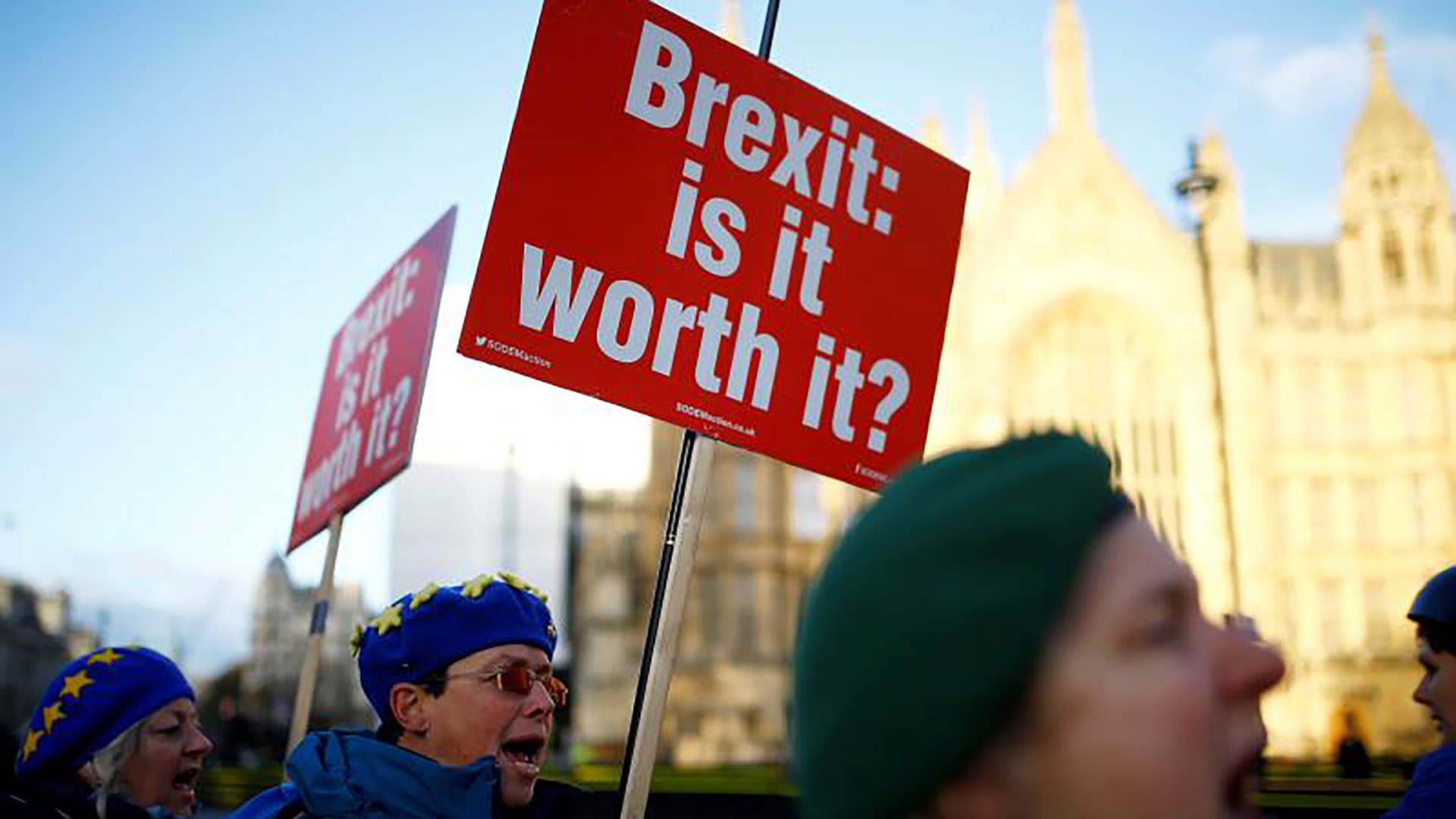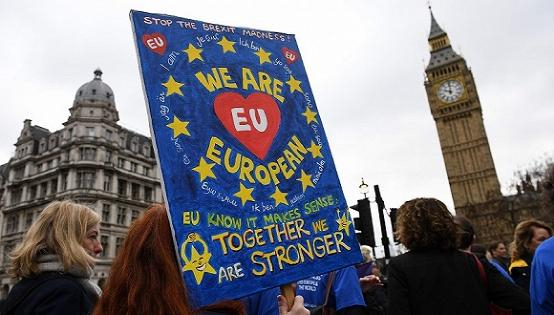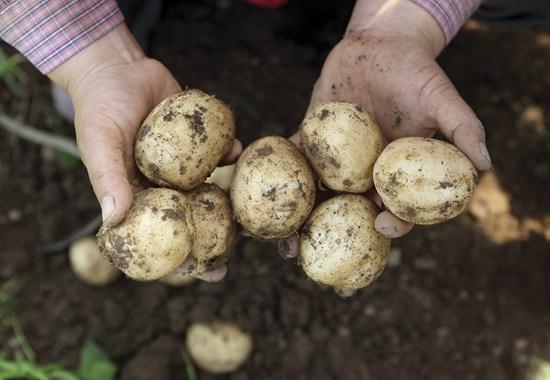
Business
16:35, 22-Nov-2018
What could Brexit mean for everyday life in the UK?
Updated
15:56, 25-Nov-2018
By CGTN's You Yang, Wu Yuhan
01:26

Much of the early debate around Britain's referendum on exiting the European Union was centered on the economy.
And while no one can know precisely the impact of leaving the EU, What are the UK’s options outside the bloc?

British citizens in support of remaining in the EU /VCG Photo
British citizens in support of remaining in the EU /VCG Photo
With the UK closing in on its exit date from the European Union next March, many Brits are bracing themselves for a very different economic reality.
How will British lives change if the nightmare that the country's remainers have long dreaded finally comes true?
Firstly, the UK's financial center London will no longer be such an attractive base for many European and multinational companies. The City of London has reported that as many as 5,000 jobs could be lost.
The British import a quarter of their food from the EU. If there is a hard Brexit, the UK could lose its tariff-free trade status with other EU members.That means, British people could end up buying a potato at a price three times higher than before.

British people can expect prices to rise in the event of a "hard Brexit." /VCG Photo
British people can expect prices to rise in the event of a "hard Brexit." /VCG Photo
International students currently contribute over 22.6 billion pounds (28.9 billion U.S. dollars) to the UK economy for the duration of their studies, with about five billion generated by EU students.
After Brexit, any restrictions on free movement or the Erasmus student exchange program would likely see this source of income hit hard.
Every day, about 35,000 people commute between the UK and other EU countries, currently without any restrictions. More than 30,000 of those workers make the trip between the Republic of Ireland and Northern Ireland.
Depending on how Brexit negotiations pan out, a large number of people could end up having to travel through customs on their way to or from work.
The Northern Irish border in particular is one of the main points of contention in current negotiations, with regards to the Good Friday Peace Agreement of 1998.

SITEMAP
Copyright © 2018 CGTN. Beijing ICP prepared NO.16065310-3
Copyright © 2018 CGTN. Beijing ICP prepared NO.16065310-3